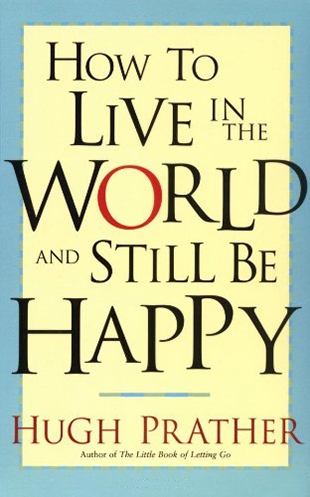Hugh Prather is the author of sixteen books, including Notes to Myself, Love and Courage, and The Little Book of Letting Go. As a minister and radio talk show host, he counsels couples, singles, teenagers, and families in crisis. He and his wife Gayle live in Tucson, Arizona, and have three sons. This paperback was originally published in 1986 and yet seems just as relevant today.
"The world is indeed a dangerous place, and obviously there are times when the worst we fear does happen. Yet what did being sick with dread ever do to protect us? Fear neither causes the thing feared to happen nor prevents it. It is mere static. It is the absence of music. It is not power. There is calmness at the center of us, a very deep well of happiness that cannot be exhausted, but it will never be experienced while our perceptions are twisted by doubt and fear." According to Prather, we have all become experts at sabotaging our chances for happiness. We feel guilty when things are going our way. The thought that we don't deserve to be happy has taken a long-term lease on the back of our minds.
In chapters on jobs, decisions, money, possessions, body, health, relationship, and loved ones, the author delineates all the obstacles that impede our joy in living and a positive outlook on things. Prather does a fine job dressing down the usual suspects, including worry ("mental procrastination"), negative thinking, judgment and criticism of others, and expectations. He presents spiritual practices that can bring meaning to the day such as setting purposes, relinquishing the past, and tapping into a peaceful stillness within. He even offers several pages on ways to release the day and get a good night's sleep.
For Prather, happiness can be savored through the practices of peace, gentleness, concentration, simplicity, forgiveness, humor, fearlessness, and living in the present moment. We always appreciate this author's personal vignettes. Here's one: "My grandmother had a way of relinquishing difficulties that I looked down on as an adolescent but now appreciate and frequently use myself. There were many tragedies in her long life, and whenever I would see her during one of these periods she would often appear completely unaffected. I would ask her how she was doing, knowing all too well the answer. As she would always say, "I am not worrying about it. I've turned it over to God." Prather also has some very good advice on practicing peace in the midst of daily troubles and tension.
